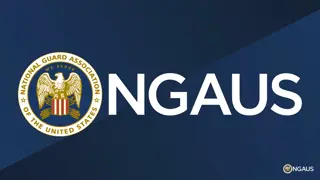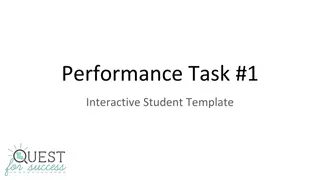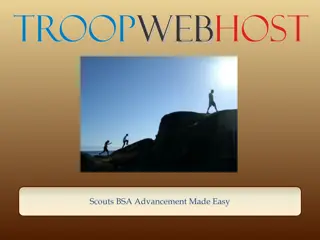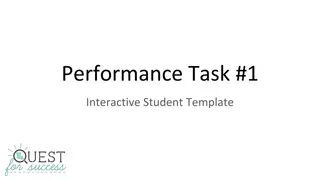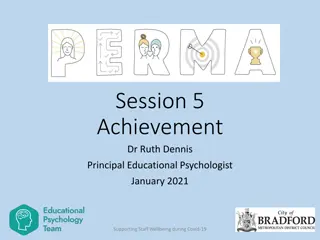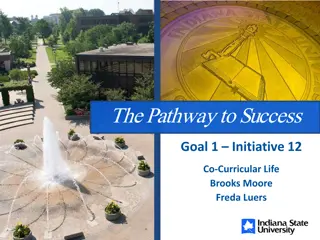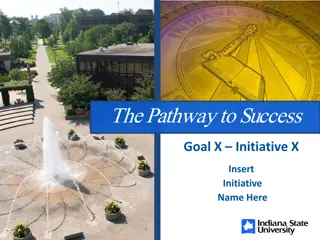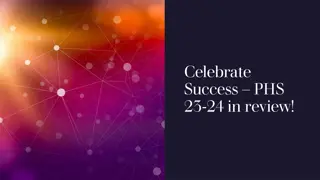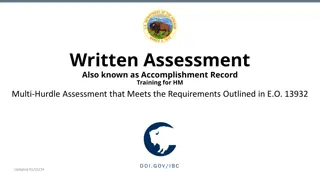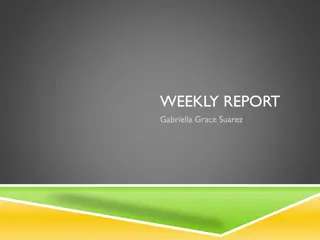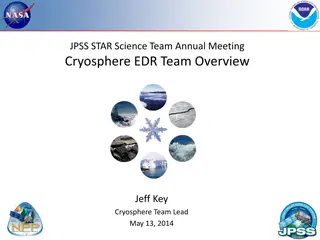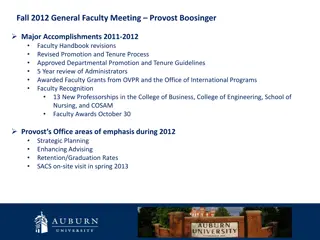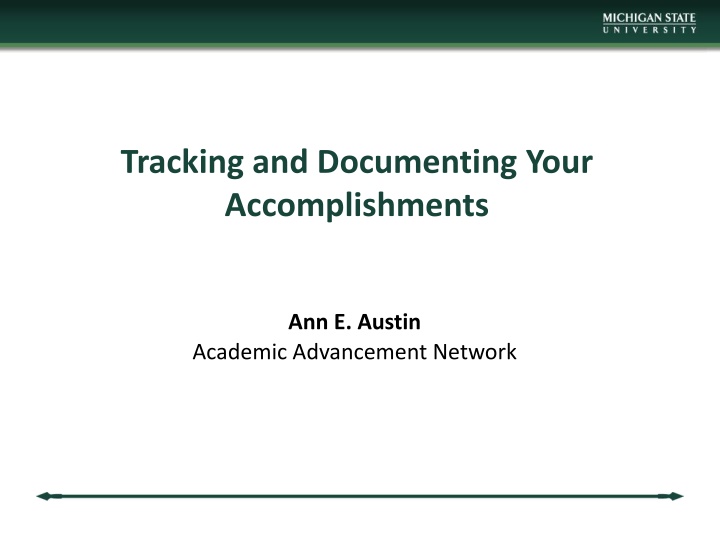
Maximizing Professional Growth through Documentation and Achievement Tracking
Enhance your professional journey by understanding the importance of documentation, what to document, how to do it effectively, and the uses of your documented accomplishments. Learn to organize and archive your work for annual and promotion reviews, self-reflection, and more.
Download Presentation

Please find below an Image/Link to download the presentation.
The content on the website is provided AS IS for your information and personal use only. It may not be sold, licensed, or shared on other websites without obtaining consent from the author. If you encounter any issues during the download, it is possible that the publisher has removed the file from their server.
You are allowed to download the files provided on this website for personal or commercial use, subject to the condition that they are used lawfully. All files are the property of their respective owners.
The content on the website is provided AS IS for your information and personal use only. It may not be sold, licensed, or shared on other websites without obtaining consent from the author.
E N D
Presentation Transcript
Tracking and Documenting Your Accomplishments Ann E. Austin Academic Advancement Network
What Well Discuss Why is documentation important? What should you document? How to document? What are the uses of documentation?
Why is documentation important? Helps make the case for: Who you are What you have accomplished The context for your work Why your work is important Your expected future trajectory But You can t document what you don t remember You can t document well without record or evidence
Documentation demonstrates who you are as a professional: The type of work you do The synergies/connections across the components of your work The context in which you do your work The impact you are making Your path to date Your trajectory as you look forward Your vitality and excellence in your role
What should you document? All aspects of your work the components directly related to your assigned duties and additional responsibilities Typically, organize your documents around three key categories: Teaching Research Service and/or Outreach The connections across the components of your work
How to document your work? Establish a system for record-keeping electronic or paper Be consistent, systematic, and organized Archive each significant event and benchmark in your professional career Seek and plan ways to demonstrate impact
What are the uses of your documentation? Annual reviews Promotion reviews Easy access of information for your own use Sharing with colleagues or those who request information Self-reflection on your progress and impact over time
Teaching: Records to Keep (slide 1 of 2) Formal Classes Schedule, class size, format Syllabi, course material Exams and grade distribution Student evaluations and summary scores Advising and Mentoring Formal advising load Mentoring relationships Students supervised in components of your work Workshops, Seminars, etc. Format, materials, evaluations
Teaching: Records to Keep (slide 2 of 2) Course and Curriculum Development Development and redesign of courses Teaching materials developed Out-of-class experiences designed Professional Activities Professional development opportunities Instructional research and grants
Teaching: Issues for Reflection Your philosophy and approach Your intended learning outcomes for students Your teaching methods, and rationale for them Approaches and innovations you have developed Impact on students: outcomes assessment, unsolicited comments How you interpret and respond to your teaching evaluations How your teaching has changed over time and why (e.g., Covid impact)
Research, Scholarship & Creative Activities: Records to Keep (slide 1 of 2) Products Books/monographs Book chapters Articles in refereed journals Creative works, such as exhibits and performances Edited works: journals, other publications Presentations at scholarly/professional meetings Other papers, reports, reviews Funding Grant proposals: funded and non-funded Grant management: budget, staff Reports
Research, Scholarship & Creative Activities: Records to Keep (slide 2 of 2) Involvement in the Discipline Manuscript reviews, conference proposal reviews Grant evaluation panels Leadership activities in professional societies Standing in the Discipline Journal rankings Citation analysis Reviews and published reactions Awards and honors Invited talks and activities Unsolicited testimonials
Research, Scholarship & Creative Activities: Topics for Reflection Overall direction and purpose of your research Questions/issues you are addressing why are they important? The range of work involved Methodologies selected and benefits/limitations Impact: major outcomes, why this work is important, whom it impacts and in what ways Adjustments and choices made (e.g., Covid) Future plans and issues to be addressed
Service: Records to Keep (slide 1 of 2) At MSU Department, college, university leadership roles Department, college, university committees Task forces and reports For Professional Organizations Leadership roles elected and appointed Committee memberships Conferences/events planned
Service: Records to Keep (slide 2 of 2) For the Broader Community Consultation and technical assistance to organizations Publications for the public and audiences outside your field Interpretations of technical information for the public Expert testimony Development of programs in educational/cultural organizations Clinical Work Diagnosis and treatment of clients and patients Supervision of staff in clinical settings
Service and Outreach: Topics for Reflection Overall direction and purpose of your service/outreach Rationale for selecting these areas of focus Adjustments and choices you have made (e.g., Covid) Impact major outcomes, who is impacted, why the work is important Future directions
Final Thoughts Document regularly and make it easy Remember that each person s case is unique Use your documentation as evidence for professional review and advancement, and for your own purposes As you document, reflect, plan, and strive to improve Approach documenting as part of professional practice and advancement
Preparing Form D Preparing Form D
Major Components of Packet Form D Reflective Essay CV Publications, Creative Works
Form D Basic Documentation (slide 1 of 3) Undergraduate and Graduate Instruction List of courses taught, including number of students in them Non-Credit Instruction Academic Advising Instructional Works (publications, presentations, etc. with teaching focus)
Form D Basic Documentation (slide 2 of 3) Research and Creative Activities List of items produced Quantity of items across categories Number of grants (details are listed at end of document) Service Scholarly and professional organizations University Broader community
Form D Basic Documentation (slide 3 of 3) Evidence of Other Scholarship Impact of and attention to any work that is not specifically associated with teaching, service, research or creative activities Integration across Multiple Missions Other Awards/Evidence
Form D Common Mistakes to Avoid Entering the wrong duty period on page 1 Typos, grammatical language Not answering all the questions
Preparing Your Reflective Essay Preparing Your Reflective Essay
The Reflective Essay is an opportunity to: Describe who you are as a scholar Explain your work and its impact Explain your choices and adjustments, given your context (e.g., COVID) Discuss the broader impact of your work Discuss the meaning of your work Explain your contributions to MSU, your field, and the broader society
What you need to accomplish in the Reflective Essay: (Slide 1 of 2) Describe how you contribute to the missions of the institution and to the society at large Demonstrate the integration across your work (show how Teaching/Research/Creative Work/Service connect in your work and make an impact) Provide information on your leadership in your discipline and at MSU Highlight the strength of your reputation
What you need to accomplish in the Reflective Essay: (Slide 2 of 2) Explain the context in which you have done your work (e.g., COVID impact statement) Show a cohesive trajectory in terms of what you have done and where you are going Discuss why the work you have done is important Explain how your work to date lays a strong foundation for your plans as your career continues for your discipline, the university, and the world
Important Suggestions: Highlight the growth, depth, and future of your work Be sure the essay is understandable and appropriate for a broad audience of scholars across disciplines Show you can reflect on your work and be self-evaluative Highlight why you do your work, why you choose your topics, priorities, approaches--explain your choices. Show your future trajectory/expected scholarly contributions
Overall Questions to Answer: Why do you do what you do? Why does your work matter? What impact are you making? To or for whom? What do you want to be known for? Why?
Tell a Story about: Your Vision: What future do you see? What will you be known for? Your Progress: What progress have you made toward your goals? In what context have you done your work? Your Evidence: What has been the impact of your work (on students, colleagues, community, etc.)? Think broadly!
A Reflective Essay should not be: A summary of your vita or Form D A list of projects and work Filled with jargon
Suggestions for Writing the Reflective Essay: Start early! Gather examples of essays from your college context Use first-person Develop a storyline (explain what you do, the context you do it in, and why) Connect the dots and show the arc of your career Seek reviewers to read and provide feedback Communicate at a level appropriate for knowledgeable people across disciplines Create a polished document that reflects your story
Final Comments: Consider the many ways you can use the essay Award competitions Personal and professional reflection Setting and reviewing personal priorities Enjoy the process!
Contact Information Ann E. Austin Academic Advancement Network aaustin@msu.edu

